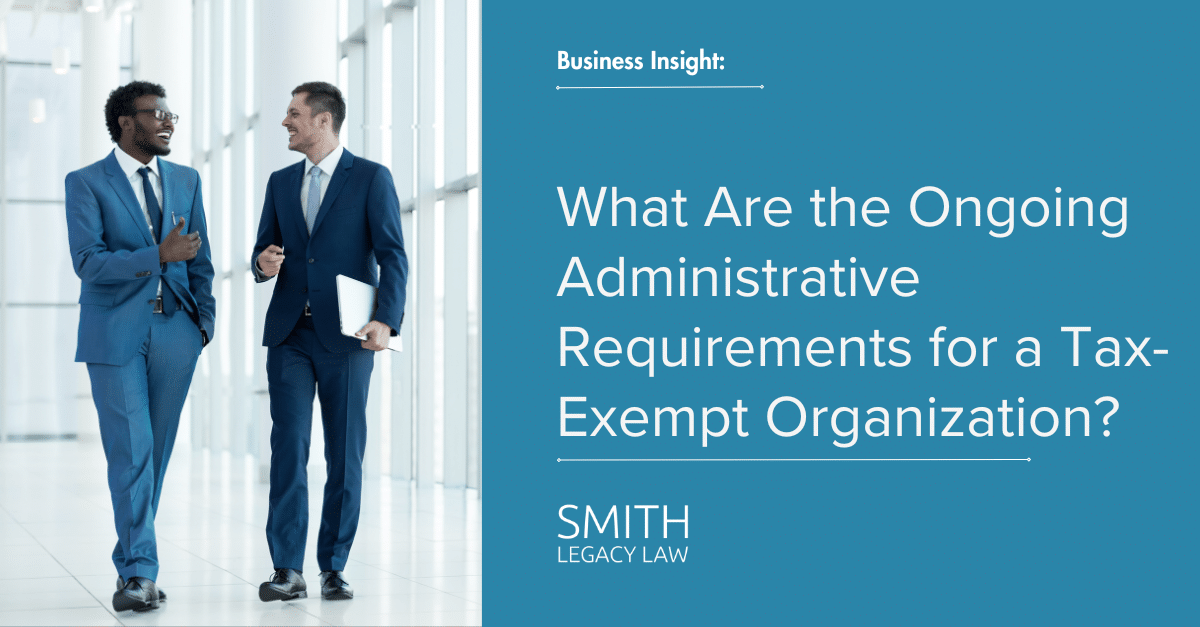Once you have established a tax-exempt organization (or nonprofit), there are ongoing administrative and reporting requirements. An attorney well versed in tax-exempt status can advise you regarding how to ensure you are running your organization properly, as, failing to comply with IRS and other requirements can result in penalties and/or loss of your tax-exempt status.
State Filing Requirements for Tax-Exempt Organizations
Upon receipt of tax-exempt status, you must check whether your nonprofit must register in your state. This is not required in all states.
IRS Filing Requirements for Tax-Exempt Organizations
Most tax-exempt organizations are required to file an annual tax return. However, the form that must be filed differs as follows:
- Less than $50,000 in gross receipts: Typically, you must file Form 990-N.
- $50,000 or more in gross receipts and required to file an exempt organization information return: You must file either Form 990, Return of Organization Exempt from Income Tax or Form 990-EZ, Short Form Return of Organization Exempt from Income Tax.
- Gross receipts greater than or equal to $200,000 or total assets greater than or equal to $500,000: Generally, you must file Form 990.
Notably, private foundations usually must file Form 990-PF regardless of financial status. All tax returns must be filed electronically unless there is an exemption.
Tax returns are due on the 15th day of the fifth month after the end of the organization’s fiscal year. However, the due date may be extended for six months, without showing cause, by filing Form 8868 before the due date. But note, an organization will only be allowed an extension of six months.
If no return is filed or if it is filed late, the IRS may assess penalties. In addition, if an organization does not file as required for three consecutive years, it automatically loses its tax-exempt status.
IRS Filing Requirements for Social Welfare Organizations
A social welfare organization must notify the IRS of its intent to operate as a 501(c)(4) by filing Form 8976. Generally, this must be done within 60 days after the organization is established. The IRS must acknowledge that the organization’s notification has been submitted. If the paperwork is correctly filed, the acknowledgment from the IRS should be received within 60 days of submitting the notification.
Other Requirements
Nonprofits, like other types of business entities, should observe certain formalities. These include holding annual meetings and periodic Board meetings. In addition, a tax-exempt organization must keep books and records demonstrating that it complies with state and federal tax rules. It must be able to document the sources of receipts and expenditures reported on its annual return and on any tax returns it must file.
An experienced tax-exempt attorney with nonprofits can help you stay in compliance with all laws and minimize risks to the organization. To learn how we can assist you with your nonprofit, contact our firm for a consultation.
